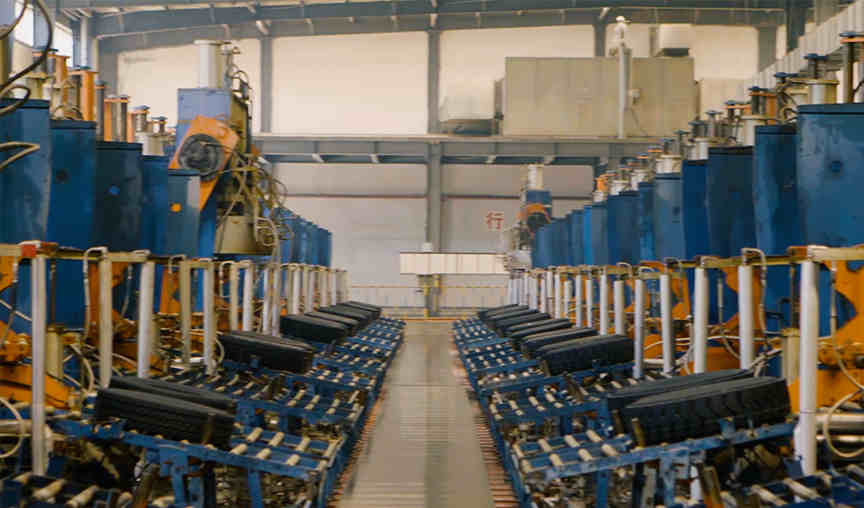
The problem of tire wear on heavy trucks must be familiar to all riders. To put it simply, due to abnormal accelerated wear on the inside or outside of the tire, a certain part of the tire wears out very fast, resulting in serious eccentric tire wear and even tire scrap.
Ⅰ. The reasons for the severe local wear of heavy truck tires are generally as follows:
1. The four-wheel alignment is inaccurate.
2. The toe-in adjustment is not accurate.
3. The steering gear is faulty.
4. The air pressure of each tire is too different.
Among them, the inaccurate four-wheel alignment and the large difference in tire pressure have a relatively large impact on the tires of heavy trucks.
Ⅱ. Abnormal tire pressure of heavy truck tires
Abnormal tire pressure can cause local tire wear, reduced handling and comfort, and increased fuel consumption. When the tire pressure is insufficient, the tire sidewall is easy to bend and break and burst. If the tire pressure is too high, the defect of the tire (such as the damaged part) will burst during high-speed driving.
Ⅲ. Severe wear of heavy truck tires is one of the chief culprits for tire blowouts
1. Overloading and improper operation of the driver, such as frequent emergency braking, sharp turns, etc., will cause abnormal tire wear.
2. In order to improve driving safety, riders still need to check their heavy duty truck tires regularly. If any problem is found, go to a professional tire shop for high quality tyre service, and detect and adjust heavy-duty truck tires. Most punctures are due to severe tire wear, resulting in a thin carcass and constant heat inside the tire. At this time, it is easy to be punctured by objects, so that the carcass bursts. Therefore, severe wear has become one of the most important reasons for tire blowouts.
3. Excessive wear, ageing, cracking and trauma of heavy truck tires can change the tire structure, resulting in air leakage and eventually a puncture. In addition to a puncture, once the tire tread blocks are gradually worn away after long-term friction with the ground, there may be slippage in the rainy season, so heavy truck tires should be stopped immediately when they are worn to the replacement mark.
Ⅳ. Other main reasons for the tire blowout of heavy trucks
1. External high temperature. When the car is running under high-temperature conditions, due to the effect of thermal expansion and cold contraction, the tire is prone to deformation and the tensile strength will decrease. In addition, the tires continue to heat up during the driving process, but the heat dissipation is relatively slow, and the air pressure increases accordingly, which causes the tire body to be too thin and the tire blows out.
2. Overloading the vehicle will also cause a tire blowout. Overloading will deform the tires of heavy-duty trucks, increase their friction with the ground, shorten the life of the tires, and easily cause tire blowouts.
4. Excessive speeding will also cause a tire blowout. The speed limit of each heavy-duty truck tire is strictly calculated and determined by the manufacturer. When driving at high speed, the tire temperature will rise rapidly, accelerating the ageing of the rubber, and prone to delamination and bursting. When the vehicle is driving at high speed, the tire rubs against the sharp stones or other sharp objects on the road, resulting in air leakage, and then a tire blowout is also a relatively common cause of accidents. Authoritative data show that a tire blowout accident occurs when a car is travelling at a speed of more than 160 kilometres per hour, and the fatality rate of the driver and passenger is 100%.
For more information, follow AULICE TYRE, and we will provide you with quality tyre services. If you have any needs, please feel free to enquire.
 E-mail: tyre@aolaisi.com.cn
E-mail: tyre@aolaisi.com.cn Tel: 0714-3509761
Tel: 0714-3509761  Language
Language 




